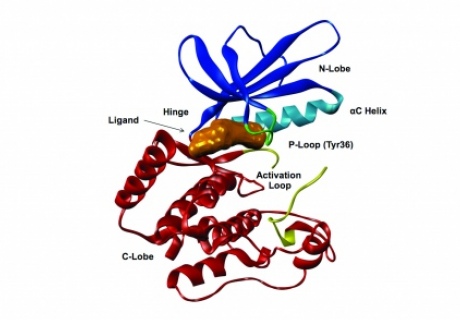Wellcome Trust funds research into reducing damage from heart attacks

Professor Michael Schneider has received 4.5M pounds funding for his research investigating how to reduce damage to heart muscle during heart attacks.
The funding, from the Wellcome Trust’s Seeding Drug Discovery (SDD) initiative, will continue to support the work that began in 2015 by enabling the next 30 months of compound development and testing.
An exciting feature of the project continues to be our use of human cardiac muscle grown from pluripotent stem cells
– Professor Michael Schneider
During a heart attack your heart’s muscle is deprived of oxygen, and the distress caused to the muscle cells causes a cascade of stress signals before they ultimately die. Standard therapies, such as stents and clot-busting drugs, restore blood flow to minimize the muscle loss following a heart attack. In contrast, Professor Schneider’s team at the National Heart and Lung Institute have been working on a drug that interferes with the enzyme MAP4K4, which plays a key role in triggering cell death following stress signals. The team is aiming to develop a new treatment to work alongside standard remedies.

The image depicts the physical structure of human MAP4K4 by X-ray crystallography, with one of our novel inhibitors (orange) nestled into the ATP-binding pocket between the “top” and “bottom” halves of the protein (Credit: Nick Martin at Domainex).
“An exciting feature of the project continues to be our use of human cardiac muscle grown from pluripotent stem cells,” says Professor Schneider. “This allows target validation and drug testing to be done in a human context from the start, before proceeding into the clinic”. This means the early testing can be done in human cardiac muscle cells, overcoming known limitations of the conventional animal studies.
After finding that computer models of compounds’ docking with MAP4K4 were not consistent in predicting the correct outcome, the team — including key scientists at Cambridge firm Domainex — have now successfully made physical co-crystals with recombinant human MAP4K4, to guide drug design more exactly. To date, over 125 novel compounds have been designed, synthesized, and tested to investigate their effects on the enzyme.
The new funding will allow the researchers, over the next two years, to decide upon the best compound to inhibit the MAP4K4 enzyme and therefore reduce heart muscle cell death. This work will include exploratory toxicology to further understand what effects the drug will have when taken, and developing biomarkers to measure the drug’s binding to MAP4K4 in the patients’ cells. Finally, further proof of concept studies will be undertaken as a prerequisite to clinical testing of the drugs in human subjects. Ultimately, the drug will be delivered through an IV, given together with angioplasty or stents in the first hours of a heart attack.
Article supporters
Article text (excluding photos or graphics) © Imperial College London.
Photos and graphics subject to third party copyright used with permission or © Imperial College London.
Reporter
Ms Helen Johnson
Communications Division